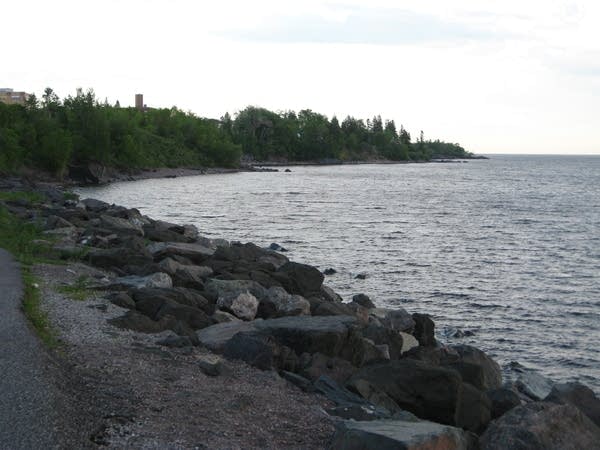U.S. House approves Great Lakes compact
Go Deeper.
Create an account or log in to save stories.
Like this?
Thanks for liking this story! We have added it to a list of your favorite stories.

(AP) - The House ratified a compact Tuesday to prevent the diversion of water from the Great Lakes, one of the world's largest sources of fresh water.
Eight Great Lakes states negotiated the compact after more than four years of talks involving business, scientific and environmental interests. Supporters said the protections against diverting water were needed to guard the lakes from future depletion.
"The Great Lakes are a vital natural resource," said Rep. Vernon Ehlers, R-Mich. "But it is also a delicate resource, which can be devastated by large withdrawals of water."
The compact, which was approved on a vote of 390-25, now moves to President Bush, who has said he will sign it. The Senate approved the compact in August.
Turn Up Your Support
MPR News helps you turn down the noise and build shared understanding. Turn up your support for this public resource and keep trusted journalism accessible to all.
Under the agreement, countries or remote states are barred from tapping into the lakes from their natural drainage basin with rare exceptions. It also requires states to regulate their own large-scale water use and promote conservation.
The Canadian provinces of Ontario and Quebec have enacted similar measures for the lakes, which contain more than 90 percent of the fresh surface water in the United States.
"For the first time ever, the Great Lakes will be truly protected from water depletion," said Andy Buchsbaum, who leads the National Wildlife Federation's Great Lakes office.
But Rep. Bart Stupak, D-Mich., whose constituents live on Lakes Superior, Michigan and Huron, opposed the bill because it contained a loophole for bottled water, exempting water diversions in a container smaller than 5.7 gallons.
Stupak said Congress spent little time examining the compact and warned that courts might declare the waters an economic commodity, opening the way for shipments to thirsty U.S. states or foreign countries.
"I do not know how any member in good conscience could vote to approve legislation that may unintentionally open the Great Lakes water to diversions," Stupak said.
State leaders in the region had developed the plan because of mounting concerns that the worldwide freshwater shortage would prompt thirsty regions to try to access the lakes.
Advocates cited an estimate from the United Nations that by 2025, two-thirds of the world's population would lack ready access to clean, fresh water.
Water agreements are common among states. Forty-five states and the District of Columbia currently belong to at least one interstate water compact, and many states belong to more than one.
The Great Lakes compact had broad support from both parties, and both presidential contenders Barack Obama and John McCain had backed the plan.
Gov. Jim Doyle, D-Wis., who leads the Council of Great Lakes Governors, said it represented "a successful partnership - one that we hope to build on in order to take even bolder steps to protect our Great Lakes."
Michigan Democrat Carl Levin and Ohio Republican George Voinovich, who led efforts in the Senate, praised the compact's passage.
"We are building on the protections of existing law to preserve this precious resource, ensuring sensible use now so that future generations can benefit from the Great Lakes as we do," Levin said.
(Copyright 2008 by The Associated Press. All Rights Reserved.)
Dear reader,
The trustworthy and factual news you find here at MPR News relies on the generosity of readers like you.
Your donation ensures that our journalism remains available to all, connecting communities and facilitating better conversations for everyone.
Will you make a gift today to help keep this trusted new source accessible to all?




